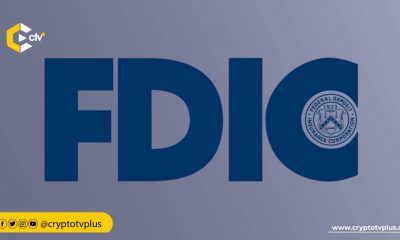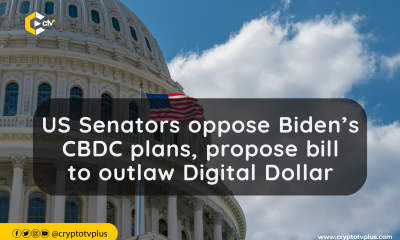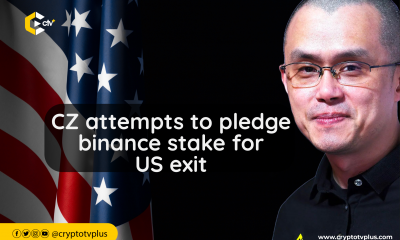News
FDIC calls for improved digital asset policies to safeguard US influence

The Vice Chairman of the Federal Deposit Insurance Corp. (FDIC), Travis Hill, has condemned the current US restrictions on banks dealing with digital assets and urged a more proactive approach to blockchain technology.
Hill believes that the regulations will impede the development and adoption of new and innovative technologies related to digital assets, such as blockchain. According to Hill, this hindrance poses a huge risk to the United States, as it jeopardizes the country’s influence in the rapidly evolving landscape of digital assets.
Digital assets refer to various forms of financial instruments or assets that exist in digital or electronic form, often utilizing blockchain or distributed ledger technology.
These assets can include cryptocurrencies, tokenized real-world assets, and other blockchain-based financial instruments.
The Federal Deposit Insurance Corporation (FDIC) is an independent agency of the United States government created by Congress to maintain stability and protect depositors.
The FDIC insures deposits in U.S. banks and thrifts in the event of bank failures, examines and supervises financial institutions for safety and soundness, and manages receiverships of failed banks.
The FDIC was established during the Great Depression in response to numerous bank failures and began insuring banks on January 1, 1934. Today, the basic insurance coverage amount for deposit accounts is $250,000.
On March 11, speaking at the Mercatus Center think tank, Hill highlighted the risks of poorly regulating blockchain technology. He said that if regulators don’t adapt to the impact of digital assets, both bank customers and the US economy could miss out on significant opportunities.
Hill pointed out the tokenization of bank deposits and real-world assets as a key concern. He noted the potential advantages, including the ability to have real-time settlement and programmable payments.
On the flip side, he urged careful thinking about possible risks linked to programmability, like higher settlement risks and faster bank runs. He stressed the need for having a way to turn off or control these risks, ensuring responsible use of blockchain technology.
This is not the first time US officials have been particularly concerned about the digital economy. Two weeks ago, the US House Financial Services Committee voted 31 to 20 to move forward with a resolution challenging SEC guidance on cryptocurrency custody.
The House’s action aims to prevent any adverse regulations from the SEC that might hinder U.S. banks interested in entering the realm of digital asset custody services.
Read also; Binance.US blames sour relationship with banks on SEC
























